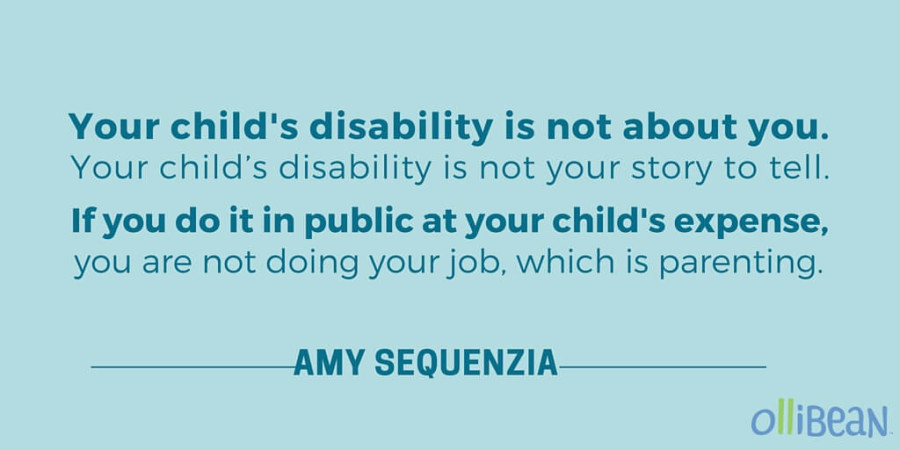
Your child’s disability is not about you. Your child’s disability is not your story to tell. If you do it in public at your child’s expense, you are not doing your job, which is parenting. – Amy Sequenzia on Ollibean
The title could also be:
Privacy of Disabled Children versus Popularity of Parents of Disabled Children.
Which one is more important?
The answer is clear to me.
As I wrote before, a child’s disability is not about the parents.
Neither is the disability something the child has done to the parents.
I know many parents who are writing about their children. Some do it right.
They write candidly, but anonymously, and/or
They don’t share private details about their children’s difficult moments, and/or
They ask their children for permission, before sharing their pictures.
These parents RESPECT their children.
Yet, some parents insist that there is nothing wrong with posting all the details of a child’s disability on the Internet – knowing that once posted, it will be there forever, and obviously knowing that children do grow up and will be able to see their life exposed online.
This second category of parents like to used some tired excuses:
. “My child does not have a voice, so I can and must speak for them” – to which I say: everyone has a voice and your job is to help your child use theirs. Meanwhile you need to stop talking publicly about your child’s disability and do some real parenting.
“You (disabled adults) are not like my (‘low-functioning’) child” – to which I remind them that a developmental disability has its own timeline. Many of us learned skills, and language, later than typically developing people. Don’t use this excuse to justify your need for attention. Your attitude only shows that you don’t believe in your child.
Then the attention seeker parents will say that they write “with honesty”, that they tell everything “the way it is”, even using the child’s real name, since they can’t “read or understand anything”, because other parents are “thanking them” all the time.
Let me repeat that:
Parents are posting private information about their children, they are posting difficult moments of their disabled children for praise from other parents.
Even if I believed in the “using my voice to advocate for my voiceless child” excuse, the parents themselves are betraying their true reasons.
Here is a direct quote from one of these parents:
“But I won’t be silenced, mainly because of the readers who have reached out to me to say “Thank you for sharing, I was feeling alone in this.” or “I understand better now what those with disabilities go through, thank you for that.” or “Wow, I never thought of it that way, you’ve made me really think about my word choices.”
Notice that a parent is claiming to understand “what those with disabilities go through” after reading something ABOUT a disabled person, WITHOUT the disabled person.
Let me tell you, as a disabled person, one thing that some of us go through: we experience frustration, we are left with a feeling of dehumanization and disrespect when someone claims to be our voices.
Do you really understand now?
And to be clear, nobody is trying to “silence” parents.
We are – at least I am – trying to make those parents see that they can share their own experiences without using their children’s experiences, names, and private information, which are not the same. Their children experience the world differently and that’s why they should use their own voices if and when they decide to.
Such parents are more concerned about their popularity than they are about their children’s privacy.
They state this themselves by admitting that the main reason is: “other parents are thanking ME, for helping THEM”. Helping the children is not mentioned, so how is that advocating “for the child”?
So, I say it again.
Your child’s disability is not about you.
Your child’s disability is not your story to tell.
If you want to help other families with tips on how to help their children, do it in private.
If you do it in public at your child’s expense, you are not doing your job, which is parenting.
You are doing it for popularity.


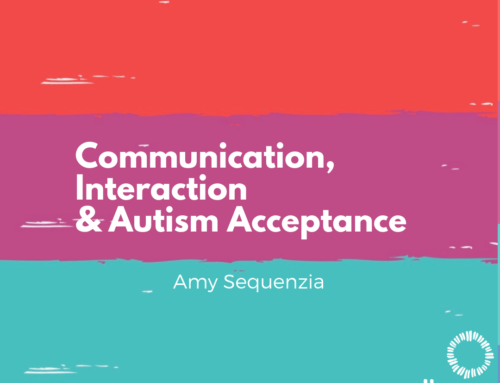
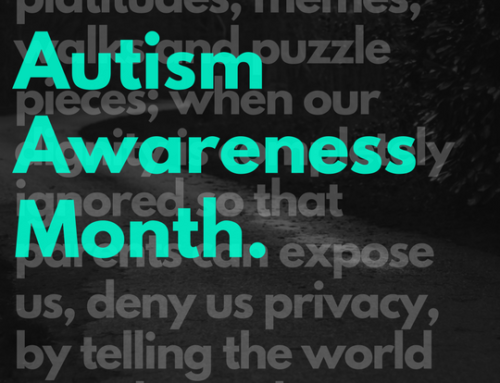
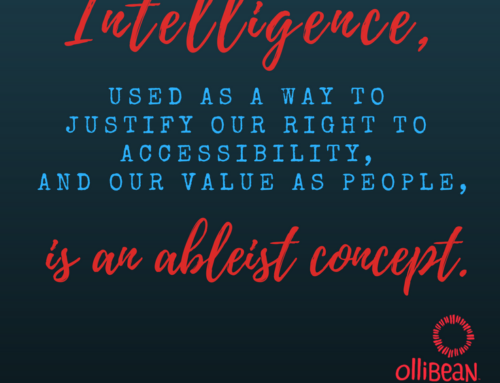
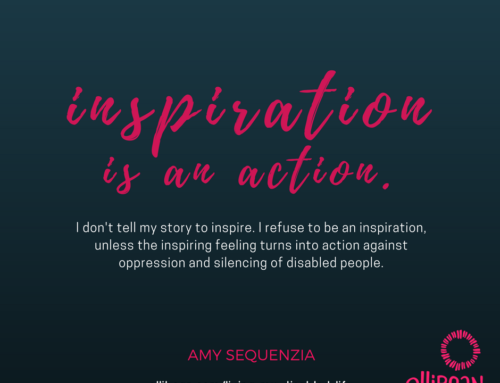
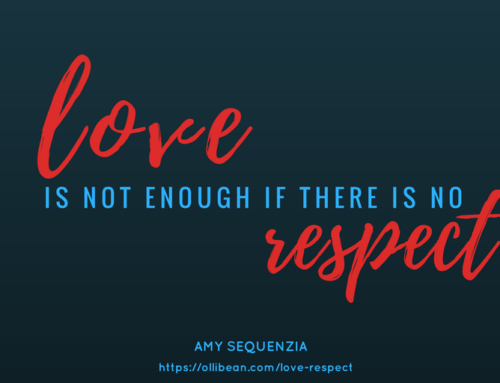
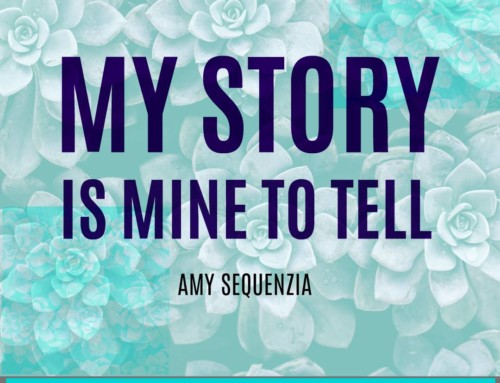
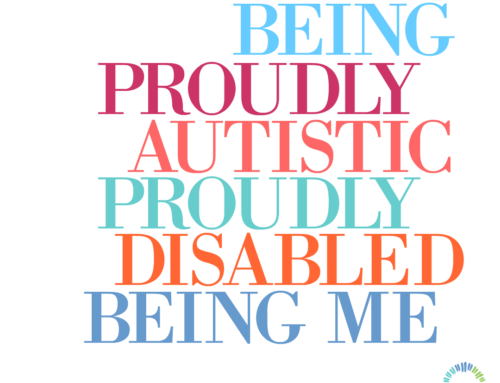
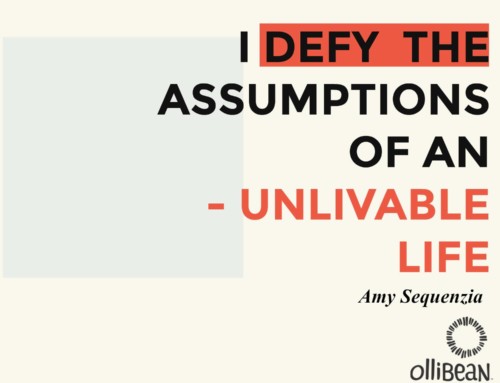
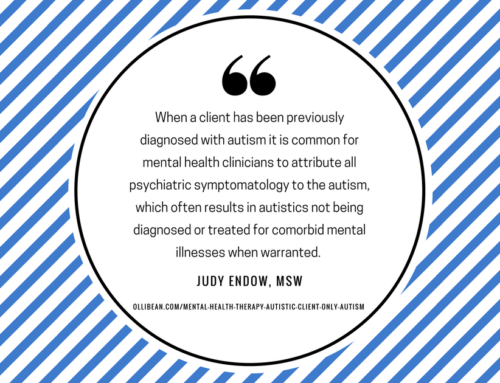
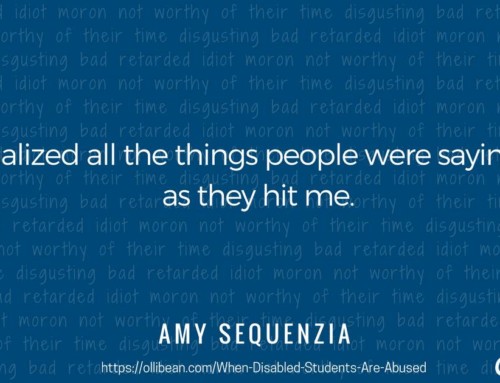

Thank you for sharing your opinion!
Awesome, thank you. Shared it with people I know in group. I am so tired of reading, hearing or seeing parents just violating their children’s rights…blows my mind…posting such private moments, photos of their children… I just don’t get why they do it…
I mean, how hard to understand? These are your kids, you should be the first person to protect them, not the first one to inflict harm and yes, I think it is harmful .
I see it happening all the time now…I usually just tell parents, if you wouldn’t walk up to a total stranger and just tell them your most private moments of your life, than why would you do it to your child…
I am HFA and respectfully disagree with you. This is a new time. People share their stories. Their stories help people and give the child a nice diary to look back on. Any of these children when they are older, will have a whole community of people who would jump to help them in any way possible. I for one would. Your also very insulting. Being autistic myself, I try to speak my mind without grabbing everyone and taking them down with me. You have lumped all parents in one big crap pot of which is not nice at all. These children are not being exploited, they are growing up in an online community that would in a heart beat reach into real life if the situation called for it.
As the parent of a child who was premature, medically fragile and has a physical disability, I could not agree more. When he was younger I was on a board where parenting of medically fragile children and children with disabilities (both physical and cognitive) was discussed. Parents shared experiences and asked for help with issues from others parents who had “been there, done that”. I made up an obviously not real nickname for both my son and for myself, and referred to us with those names only. It is important to be able to share with other parents, to both give and get support, because the experiences, the realities of dealing with ongoing medical uncertainties, the worries and the joys over moments that to many would seem insignificant, can often leave parents feeling isolated. It IS possible to share and support without giving up privacy and I think that, to ensure that our childrens dignity does not get trampled on, we MUST do everything in our power to maintain their privacy.
I disagree. I had a stroke due to a brain aneurysm age 14 1992. I felt VERY alone. There was no internet and no guidance for me. Stories. pages, life stories would have helped me.
I don’t use functioning labels, but:
You should read it again. I did not lump parents since I did say that some parents do respect their children.
Advocating for your children is awesome. Sharon private information is not. Imagine your parents telling total strangers about your bathroom habits, if you can use the bathroom or not, describing your meltdowns, letting them know all you private moments without your consent. Disabled people who are very disabled and need a lot of help still have the right to dignity.
I will support any child who decides to join the community. I don’t need to know all the details of any other disabled person to value their dignity. And I will do my best to support and try to help any parent who comes to me in private, if personal information about the child needs to be shared for any reason. Privately.
I never said that sharing is not helpful. What I said is that sharing private information that is not yours is not ok. Some parents share very private and personal information and this is disrespectful.
You do it right! You are parenting right!
Thank you! Yes, it happens too many times and it is hard to understand why respect for the children don’t come first
I have to disagree, my daughter has a very rare condition and if it wasn’t for the support of my closed group and sharing our experiences, my child would not have found the life saving care she needed. If it were not for putting our story out their we would not have members of our group that have gotten their children diagnosed because our very personal stories triggered memories of specific symptoms they recognized and through shared information came to a specialist, one of only in this country, who could diagnose their child. This has saved lives. I’m sure my daughter would be happy to know that posting a list of her symptoms has helped another recognize the similarity and was treated and a life saved. I frankly don’t know any mom who would expose their child for the sake of being “popular”…that is so far from the truth it’s scary. If you are ever the parent of a child with a life threatening or limiting disability maybe you will change your mind. I’m sorry that’s my opinion, and shaming us is just not right.
I totally agree with you. You can be a great parent without exploiting your child all over the internet. I have custody of my three grandsons and all of them have their unique abilities. I can share with my family, friends and the few specialized groups without giving away too much information. I do it without plastering their photo’s and private information. I lost what I thought was a good friend when she adopted a special needs child and started flooding her news feed with constant stories and photo’s of the adopted child just for her own need of attention. The more her friends commented on what a wonderful person she was, the more she posted. Very sad that some parents fulfill their own need for attention and praise through their children.
I am always interested in the adage frequently used by those in the autistic community: “Nothing about us, without us.” It goes for parents of children with disabilities. You are not parenting a disabled child or children. You cannot speak for those of us who do, You cannot assume or understand our motives. As the parent of a severely physically and intellectually disabled adult, (and step-parent to another) I remember it was the bloggers who spoke about the daily trials and tribulations of this parenting life that opened my eyes and saved my sanity. I learned from them continually. It changed my life and, consequently, my daughter’s life. Some are better writers than others, and you may feel they cross some arbitrarily set line in the sand (who sets it? You?), but, in my view, what is out there is more of a service to individuals in the disabled community than you can ever understand.
I don’t know what you post but maybe you should read the article again. Or the other comments here, with my replies.
Imagine if you become disabled and whoever is your main personal assistant posts details about your daily routine, from bathroom, to shower, to difficult moments – detailed information – without your consent. Would you be ok with that, even if some other people said how helpful it was? This is what the parents I refer to in the article do to their children. Details, from the girls periods and how the parent is “so stressed” because of the “mess”, to the boy’s first erection and how the kid “embarrasses” the whole family.
This happens. Do you disagree that this kind of information is disrespectful to the child? Because that’s what I wrote.
It’s so scary to read in the comments that there are people who don’t seem to understand the difference between sharing experiences and sharing personal information. I sincerely hope this is only because of careless reading, because if it is not, those who are getting it right are doing so for the wrong reasons.
It’s so simple folks: sharing experiences helps others in similar situations. It’s irrelevant to know if it was Cha’relle or Hakeem who went through something and how they dealt with it. Sharing who went through what, or posting video’s of your child’s meltdown is infringing on basic human rights beyond repair.
I think Amy needs to get a grip. I don’t have any problem with privacy. Most of the time when I post photos or anything about our child in any forum, I use an initial not her full name. I don’t share her entire medical record on Instagram or any other form of blogging or social media. However, I reject your position almost in it’s entirety. No, my child’s developmental disability is hers, not ours and it’s not our fault. This didn’t happen TO me or my husband. However, as a family we are ALL in this together. So, it is OUR story to tell. I will not ask her permission to post photos of her. They are my photos. I took them. I will do with them as I please. BTW, I rarely share any compromising posts or photos anyway. If sharing our story gets us closer to a new family who needs help and support as they embark on our same trajectory, or we need help and support, or it helps us find a new doctor or a new treatment or even a cure, then I would be the Kanye West of special needs parents. Hey, Amy. I’mma let you finish but first I’m gonna tell you the story of our family and our battle against Congenital Hyperinsulinism and then I’ll announce my run for President.
Who are you to criticize anyone and their parenting skills?! Do you have children? If so, good for you! I trust that you are doing great at this whole parenting thing. Just ICYMI, there is no manual handed to any parent let alone a special needs parent. We are all just out here in the ether of the social network trying to do the best we can and get through the next moment, hour, day, week of love, life and loss. So, I say YOU are not adulting correctly. Perhaps you should check your unsolicited opinions about other people’s parenting skills and like a good, honest, blogger–keep them to yourself. That would be adulting AND blogging done right!
Where is the original version….change of heart?
While your article has some merit I don’t agree wholeheartedly. The burden of a disability is shared by the individual and the caregiver. To say a childs disability is not about the parents is a partial truth. Yes the disability is the individuals however the work and commitment from caring parents is so great that i believe the disability is in part about the parents. I do agree some people healthy or other wise use social media as a venue for attention at there families expense which is wrong. I have a high needs child with cp and I love sharing our journey for my friend’s to see it gives people insight into the work involved. I however do not share details of potty training or those sorts of details on social media. Your article did give me pause and made me reflect on what I post and whether I am respecting my daughters right to privacy. Thank-you
Tim
Thanks Amy. As a parent who has always chosen to respect my child’s right to privacy it can sometimes be difficult to explain my stance to other parents who do not share my view. I have seen parents who choose to share bc they see their role as educating the world, raising money etc. These are noble causes, but I wonder at what cost to the individual they talk about.
Your comments above remind me to continue to trust my instincts. That my son’s right to privacy is paramount. When/if he chooses to share his diagnosis with the world it will be on his terms and on his timeline.
If you don’t share private and personal information about your child, or pictures of private, difficult moments, you are one of the parents that I say are respecting their children, so I don’t understand your outrage.
As for keep it to myself: no. I am not forcing my opinions down anyone’s throat. I am a blogger so I write my opinions.If I keep it to myself, then I am not a blogger anymore. You, on the other hand, don’t have to read it. your choice.
Great, you had the support you needed, or at least you found some support. At any moment, did you find that very private information about other children were absolutely necessary for the support you found? Even if the very private information helped you somehow, was it necessary for it to be shared publicly – this is a hypothetical question, since I don’t know you but I am not advocating Not Sharing. I am asking for parents to not share – publicly – very personal and private moments of their children.
I am part of the disabled community. I am disabled. Oversharing in public is not respectful, unless you are talking about yourself.
With everything you’ve said here being correct, I do feel the need to point out that children do not grow up all by themselves, and that a parent who needs help and who gets that help is often going to be a better parent to their child as a result. Parents who write about disabled children are surely not informing other parents of what it’s like to be a disabled child, but they DO know what it’s like to be the PARENT of a disabled child. With that in mind, I think that writing under a pseudonym, giving the child a pseudonym, and obscuring identifying details might be the best way to accomplish that sort of thing. Because even a doctor or a therapist who works with disabled kids but doesn’t have any of their own is not going to be able to relate to a disabled child’s parent and their situation at all. (I think it’s cute the way caregivers think they’re just like parents. Went through that with a woman who was a former daycare worker and suddenly she was everyone’s mom even though she had no kids of her own. Nope. Sorry. It’s not the same when you give them back.)
I would rather choose privacy over popularity but we have all our differences about the to matter.
Thanks Amy, as a parent of two autistic young men -and no I won’t label their level thanks for that insight as well- I found your article very helpful. It also made me a bit uncomfortable which perhaps was the idea behind writing it. Thanks for that too. I have long advocated that my boys were children first and foremost. The fact that they needed extra support or services took a backseat to their indivuality and right to be treated like others. Perhaps a rule of thumb I could suggest is before you post something about a disabled family member stop and think if you would post it about a neurotypical person. There are many blogs, websites and groups to help families of typical children. Would you post something embarrassing about your typical but currently irritating ( orvwhatever)14 year old? Would you identify them by name ? All children grow and go through stages of development. As you point out- autistic indivualals have their own schedule. Blogs and websites are very helpful for all kinds of families. The realization that you are not alone is a lifeline that is valuable. Just guard privacy for others as you would yourself. Looking forward to reading more Amy, thanks.
Because autism independent of intellectual and language disabilities was virtually unknown in America until around 1990, us Sixties and Seventies children were most certainly not diagnosed in school. I was 51 years old by the time I finally got a formal diagnosis of autism under DSM-5. Today I was responding on a Daily Mail (UK) forum and a person said I was “self-diagnosed” and was “using autism to justify my bad behavior”.
The majority of the public seem to think that only severely and visibly disabled people who are children and young adults right now can be “really autistic” and that one has to look “not right” (keep in mind, I’m in Texas) in order to be legitimately autistic.
Where on earth are people getting these groundless ideas about autism? I have my suspicions but thought I’d ask a real expert like Amy.
Just set up my website so not much content yet …
We are not all diagnosed as children, nor do all of us receive any autism support therapy or even ADA-mandated accommodations at work or anywhere else.
The current national conversation in America is mainly parents discussing their children and very few people, especially professionals who surely ought to know better by now, understand that autism doesn’t fit a narrow stereotype in terms of age, physical appearance or level of intelligence.
Well said, and quite right. Social media encourages that sort of egotistical behavior and very often at someone else’s expense, including the poster’s own family. Pathetic.
Interesting read.
I am blogging parent who uses pseudonyms instead of names, writes in broad strokes rather than specifics, and never shows my children’s faces.
This is a deliberate choice out of respect for my children and a decent amount of fear over the awful people in the world. I just don’t think people need to know who my children are, what they look like, or the specifics of their private moments to understand the message in my writings.
I write about my experiences, which I own entirely. I write from my perspective and take no ownership of my children’s minds. They are their own people and will, one day, read what Daddy wrote about them for the world to see. I take that very seriously.
For the most part, the message I relay about my life is one of hope, humor, insight, and introspection. At first, it began as a cathartic journey of writing, trying to come to grips with feeling isolated, under-represented as a father, and frustrated with my lack of control. So, I wrote.
Soon, I found that people were following and reading. Unknown people who had no right to my family’s information. So, I continued writing anonymously and will always do so. But, I’ve also varied my message as I now feel a lot closer to the autism community due to my blog. People reached out, connections were made, and new friends were brought together.
I no longer feel isolated and alone because of my choice to write, but only my family and friends know my children’s names because I protect and respect them.
I love every part of this. You could substitute “ability” for “disability” in almost every sentence and still be 100% right on.
Our kids aren’t chattel. They’re independent human beings with their own strengths, weaknesses, joys, dreams and tastes. It’s just not fair to exploit another human being that way. Much of what mothers write about their own children online would be seen as libel if they wrote it about an adult neighbor or colleague.
I love every part of this. You could substitute “ability” for “disability” in almost every sentence and still be 100% right on.
Our kids aren’t chattel. They’re independent human beings with their own strengths, weaknesses, joys, dreams and tastes. It’s just not fair to exploit another human being that way. Much of what mothers write about their own children online would be seen as libel if they wrote it about an adult neighbor or colleague.
It takes a combination of many things, both knowledge,, private and public, to get people to understand many things. I am a retired teacher, graduating from college in 60, and winding up in Grad school in 62…in one of the first programs that worked with kids with disabilities. There are MANY disabilities..and it was at that time, I learned WHY I was unable to read aloud..and still can’t..BUT…many of us still learned..but in our own way. When I kept getting stuck in elementary classes to teach (female..that was why), I was also given the ‘tough kids to deal with’, Today, several of those kids would have been diagnosed with Autism..including a couple with Aspergers. BUT..every kid can learn, but they must be allowed to. I had parents come blasting into my high school World History class to ‘inform me their child had learning disabilities and MUST not be expected to do certain things and how dare I assign them the same as everyone else’. These students were put in my class which was basically an honors class…and with few exceptions, they did what all the others did. Okay, just because one girl had to HEAR the test and read aloud, I put her desk just outside the door of my classroom where she could hear herself read. I explained to the other teachers what was going on, and to the principal. She became a B student in a tough World History class. You see, many parents, without realizing it, also hold their children back. The parent that came in complaining I was making her student do what all the others did..ran into the wrong group of kids…who started laughing (and I threatened to strangle them with a look) and before I could say anything, informed the parent that “Blond Polack in teh classroom, who wrote backwards sometimes, who did not read aloud so didn’t force them to, and who had eyes in the back of her head, was teacher”. I told the parent that just because a child has learning disabilities, it didn’t mean they couldn’t learn. We would figure out what worked and go from there.
I have a number of friends who are autistic. One was diagnosed when her two kids (one a teen and one younger) were diagnosed. There were many reasons why people weren’t diagnosed, if they could ‘function’ in a somewhat normal (no one is ‘normal’) society because there was a stigma attached. One friend served in Vietnam; another one was an engineer. We have the Key Training Center here where I live, and many who are autistic work in the community in stores, at teh hospital. Some live in group homes and work at the center in a sheltered workshop. Not all communities do this, and parents here have learned to respect their children and teh community has learned to respect those with different learning abilities and issues. They communicate, but they do not make it ‘personal’ about them.
I found this surprisingly refreshing. What has been written here isn’t going to rub well with the current popular culture of talking very openly about our children’s challenges on social media or in front of extended family or school parents (which drizzles down to their children and onto the playground). I understand that we all have different personalities and for some parents, perceiving that many others understand their child’s challenges is important to them, which in turn may help them be more understanding and accepting of their child. If that is what some parents need, I say, its better to do that compared to the child growing up feeling unaccepted because the parent felt socially isolated in understanding. Perhaps that’s because those parents really need constant public validation due to insecurities or past feelings of rejection or just being more self-centered. I personally have chosen to keep my children’s challenges private, excluding not-so-close friends, extended family, school mums etc. It isn’t about me, its about how my children feel and they have no control what I say about them but they have feelings and their personal issues are as private to them as mine are to me. What I tell people can have lasting implications and ramifications for my children, many of which cannot be predicted but certainly cannot be undone. My children’s psychologist once told me there are 2 main groups of parents to come to see her regarding special children. First are the parents who are searching for answers, sometimes a label as well, for a child because they desperately want to help their child become the best they can be. The second group are largely self-centered and they’re seeking labels to validate themselves though sharing this label with others, and often without genuinely seeking to help their child. Thank you for your thoughts.
This article would have been more effective if it had simply laid out what is acceptable and what is not acceptable when posting about your experience as a parent, any parent not just one with a child with a disability, and why. Having said that, I did learn something from the article but found it was ineffective and almost detrimental to have to weed through the emotional and judgemental parts to get to the facts and the point that needed to be made. Still, thank you for making your point that ignoring privacy laws (or standards if laws do not exist and it seems like they should) can be detrimental to your child. I do think the point needs to be made more often and more clearly for the sake of everyone involved. I think some people just don’t realize the point you are trying to make (that does not make them a bad parent, just an unaware one) and sadly they still will not be aware since the judgements here will have put them on the defence.
A twist on ‘Poster Child’.